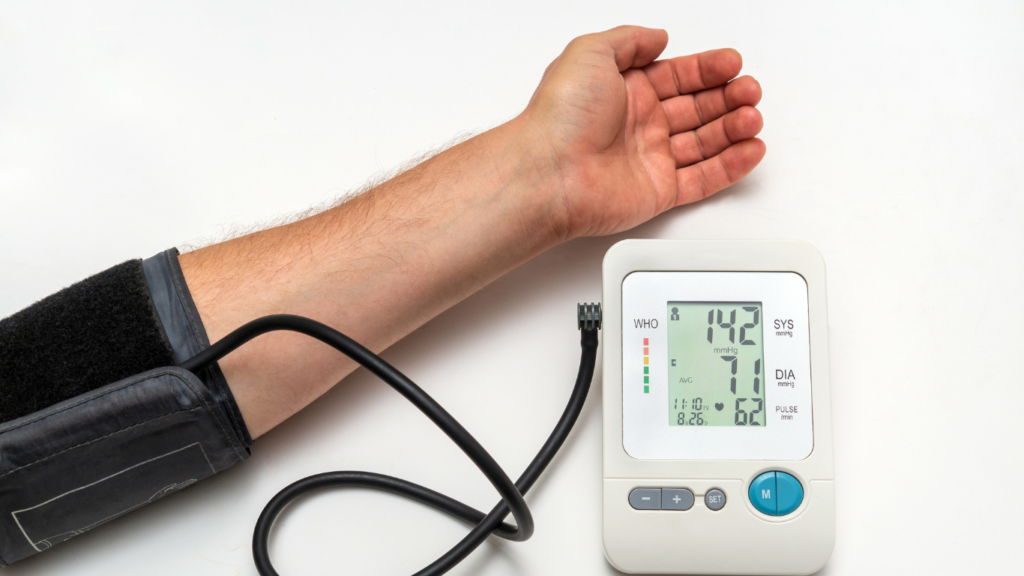Embarking on a fitness journey can be both exciting and overwhelming. With a plethora of fitness trackers flooding the market, choosing the right one tailored to your goals is crucial for success.
As a fitness enthusiast myself, I understand the importance of finding a tracker that aligns with your unique needs and preferences. In this article, I’ll guide you through the process of selecting the perfect fitness tracker to help you stay motivated, track your progress, and achieve your fitness objectives.
From step counting to heart rate monitoring, each feature plays a vital role in enhancing your workout experience. So, let’s dive in and explore how you can make an informed decision when it comes to choosing the ideal fitness tracker for your specific health and fitness goals.
Understanding Your Fitness Goals
When it comes to selecting the right fitness tracker, the first step is understanding your fitness goals. Your fitness objectives play a crucial role in determining the features you need in a tracker.
Whether you’re focusing on increasing your daily steps, monitoring your heart rate during workouts, or tracking your sleep patterns, knowing what you want to achieve is key. To align your fitness tracker with your goals effectively, consider the specific metrics you’re interested in tracking.
For instance, if you’re aiming to improve your overall cardiovascular health, a tracker with accurate heart rate monitoring capabilities is essential. On the other hand, if weight loss is your primary goal, a device that tracks calories burned and provides activity reminders might be more suitable.
By understanding your fitness goals and the metrics that matter most to you, you can narrow down the options and choose a tracker that aligns with your workout preferences and lifestyle. This tailored approach ensures that your fitness tracker not only tracks your progress but also motivates you to achieve your desired fitness outcomes.
Types of Fitness Trackers
When selecting a fitness tracker, understanding the various types available can help you align your choice with your specific fitness goals. Here are two common types of fitness trackers to consider:
Activity Trackers
Activity trackers are designed to monitor and track your movement throughout the day. They typically count your steps, estimate the distance you’ve traveled, and calculate the calories you’ve burned.
By providing insights into your daily activity levels, these trackers can help you set achievable fitness goals and stay motivated to move more.
Heart Rate Trackers
Heart rate trackers measure your heart rate in real-time, giving you valuable data about your cardiovascular health and workout intensity. By keeping track of your heart rate during exercise, you can ensure that you’re working out at the right intensity to maximize your fitness gains.
These trackers are particularly useful for individuals looking to improve their endurance, track their performance over time, or ensure they’re staying within their target heart rate zones during workouts.
Key Features to Consider
When selecting a fitness tracker to align with your fitness goals, there are several key features to consider. These features play a crucial role in tracking your progress and ensuring that the tracker meets your specific needs.
Here are essential aspects to keep in mind:
- Activity Tracking: Look for a fitness tracker that offers robust activity tracking capabilities. This feature allows you to monitor your daily movement, including steps taken, distance traveled, and calories burned. By having accurate activity data at your fingertips, you can set achievable goals and stay motivated to stay active throughout the day.
- Heart Rate Monitoring: Opt for a fitness tracker equipped with heart rate monitoring functionality. Monitoring your heart rate during workouts provides valuable insights into your cardiovascular health and helps you gauge the intensity of your exercises. By keeping track of your heart rate zones, you can optimize your training for maximum efficiency and better results.
- Sleep Tracking: Consider a fitness tracker that includes sleep tracking features. Quality sleep is essential for overall health and fitness, and a tracker that monitors your sleep patterns can help you understand your sleep quality and make necessary adjustments to improve restfulness. By analyzing your sleep data, you can work towards adopting healthier sleep habits.
- GPS Integration: If outdoor activities are a part of your fitness routine, choose a fitness tracker with GPS integration. GPS allows you to accurately track your routes, distances, and pace during activities like running or cycling. By leveraging GPS capabilities, you can monitor your progress in real-time, set new challenges, and explore different workout routes.
- Water Resistance: Ensure that the fitness tracker you select is water-resistant, especially if you engage in activities like swimming or water sports. A water-resistant tracker can withstand exposure to sweat, rain, or even swimming sessions without compromising its functionality. This feature adds versatility to your tracker, allowing you to track your fitness regardless of the environment.
- Smart Notifications: Look for a fitness tracker that offers smart notifications to keep you connected and informed throughout the day. Smart notifications allow you to receive alerts for calls, messages, and app notifications directly on your wrist. By staying connected, you can manage your tasks efficiently without constantly checking your phone, ensuring you never miss important updates.
By considering these key features when choosing a fitness tracker, you can make an informed decision that aligns with your fitness goals and enhances your overall fitness journey. Remember to prioritize features that are essential to your workout routine and lifestyle to maximize the benefits of your fitness tracker.
Compatibility with Your Devices
When considering a fitness tracker, ensuring compatibility with your devices is crucial. It’s essential that the tracker you choose works seamlessly with your smartphone or other gadgets. Make sure to verify that the fitness tracker you’re eyeing is compatible with your specific operating system, whether it’s iOS or Android.
This compatibility ensures that you can easily sync your data, receive notifications, and make the most of the tracker’s features without any hitch.
I suggest checking the compatibility details provided by the manufacturer to ensure a smooth user experience. Don’t forget to look into the supported devices list to confirm that your smartphone or tablet is on it. This step prevents any frustrating surprises after you’ve made your purchase.
By ensuring compatibility upfront, you can dive straight into using your fitness tracker to its full potential, seamlessly integrating it into your daily routine.


 Dawnny Armstrongster, the visionary founder of Toe Back Fitness, is a passionate advocate for health and wellness, driven by a mission to empower individuals to lead active, balanced lives. With a deep understanding of fitness and injury prevention, Armstrongster has cultivated a platform that merges expert insights with practical advice, making fitness accessible to people at all levels. Her commitment to promoting sustainable lifestyle habits and safe workout practices reflects her dedication to long-term well-being. Under her leadership, Toe Back Fitness has become a trusted resource for those seeking to enhance their physical health, choose the right gear, and build routines that align with their fitness goals.
Dawnny Armstrongster, the visionary founder of Toe Back Fitness, is a passionate advocate for health and wellness, driven by a mission to empower individuals to lead active, balanced lives. With a deep understanding of fitness and injury prevention, Armstrongster has cultivated a platform that merges expert insights with practical advice, making fitness accessible to people at all levels. Her commitment to promoting sustainable lifestyle habits and safe workout practices reflects her dedication to long-term well-being. Under her leadership, Toe Back Fitness has become a trusted resource for those seeking to enhance their physical health, choose the right gear, and build routines that align with their fitness goals.